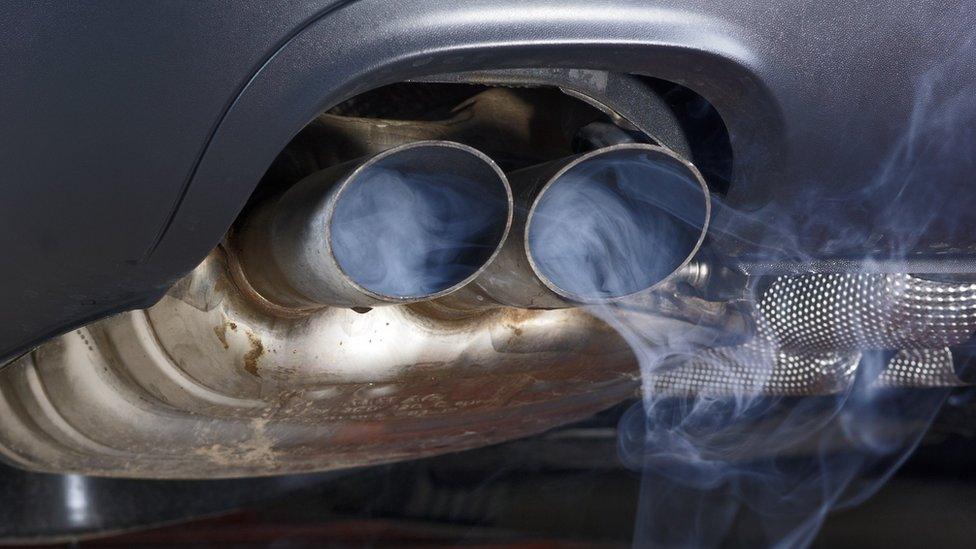Bath air quality improves since introduction of clean air zone
- Published
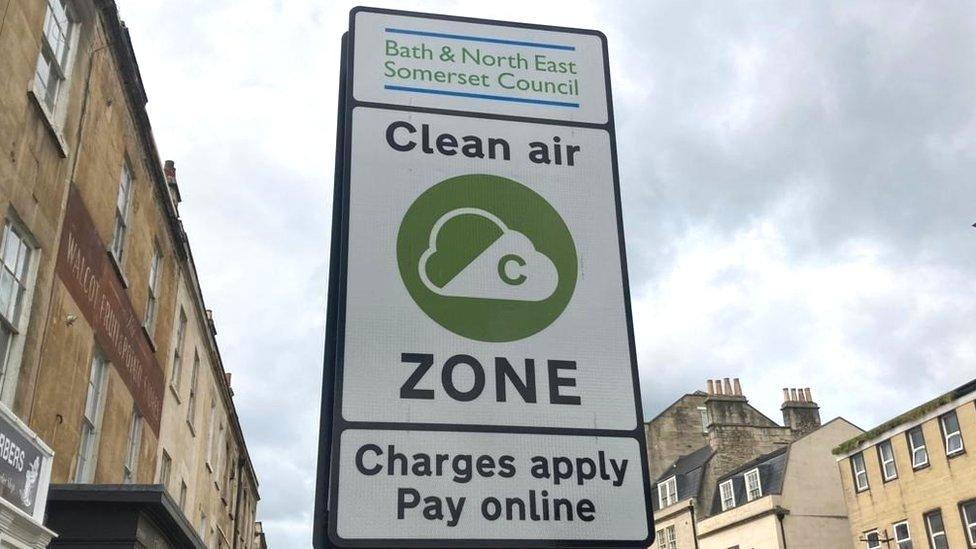
Bath's Clean Air Zone came into force in March 2021
A city's air quality has improved following the introduction of a Clean Air Zone (CAZ).
In March 2021, Bath became the first city outside London to introduce a CAZ.
Now a report published by Bath and North East Somerset Council shows a 26% reduction in nitrogen dioxide, a pollutant from vehicle exhausts, since its introduction.
Air tested by all 65 of the council's Bath monitoring stations now meets legal standards.
Before the CAZ was introduced, illegal levels of pollution were recorded at 12 places across the city.
When driving through the zone, non-compliant taxis and vans must pay £9, while the charge for lorries and buses is £100. Private cars are exempt.
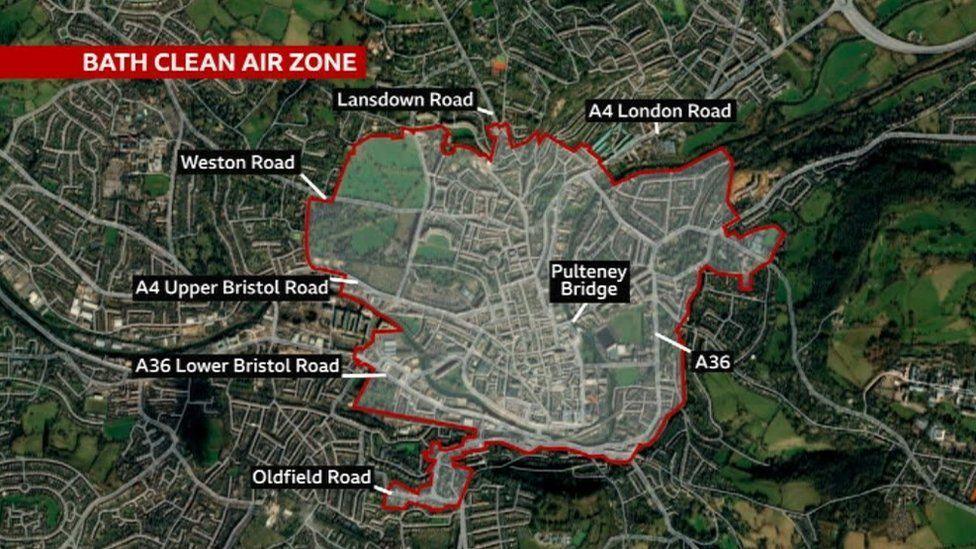
The Clean Air Zone covers the centre of Bath
When the CAZ was first introduced, 6% of vehicles were non-compliant. That has fallen to 1% now, which is just under 500 vehicles a day.
Kenny James has lived in the city for 11 years and said he had noticed there has been a difference in the air quality recently.
He also said that there has not been as much heavy traffic travelling through the area which "makes a lot of difference".
"It doesn't make the road any quieter. But I'm glad they're taking the initiative to try and make the place cleaner, especially for us local residents," he said.
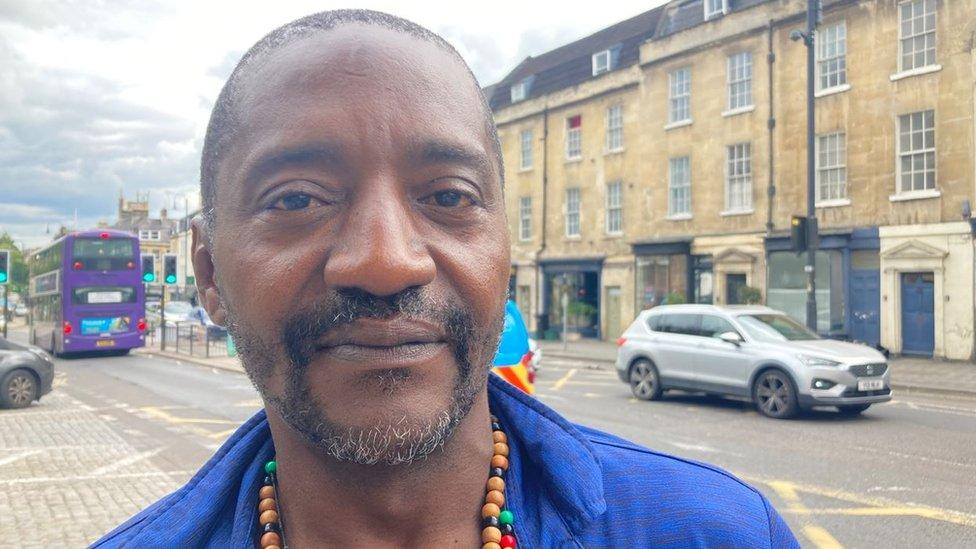
Mr James said he had noticed a difference since the introduction of the CAZ
Councillor Sarah Warren, deputy leader of Bath and North East Somerset Council, said: "It's heartening to see the clear indications in this report that the Clean Air Zone is working to improve air quality across the area, not just within the zone."
The charges and fines paid by drivers go first to central government, which uses some to help run clean air zones.
The rest returns to local councils. Bath and North East Somerset received nearly £10m as a result between March 2021 and May 2023.
The money must be spent on transport projects, including financial assistance for owners of polluting vehicles, helping to pay for 938 to be replaced or upgraded by the end of 2022.

Follow BBC West on Facebook, external, Twitter, external and Instagram, external. Send your story ideas to: bristol@bbc.co.uk , external
Related topics
- Published23 June 2021
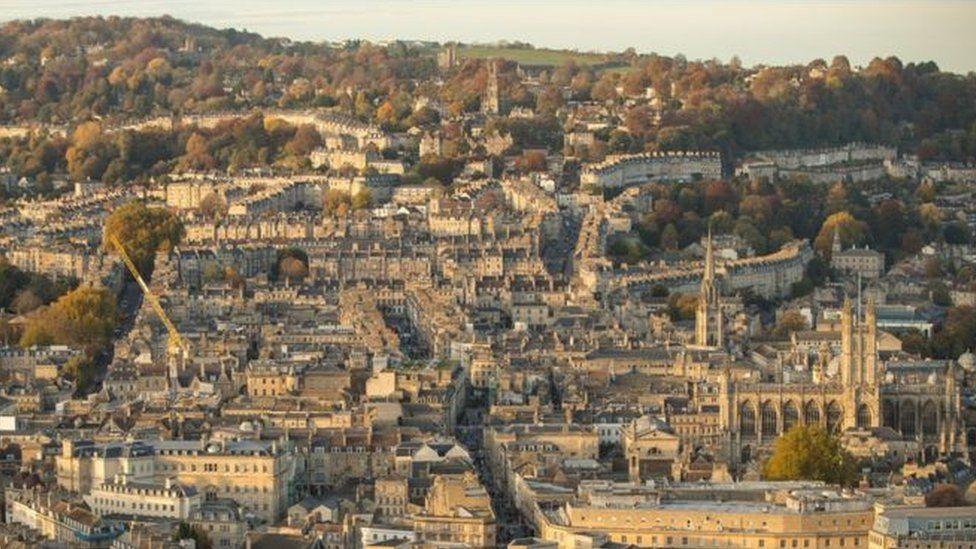
- Published28 October 2021
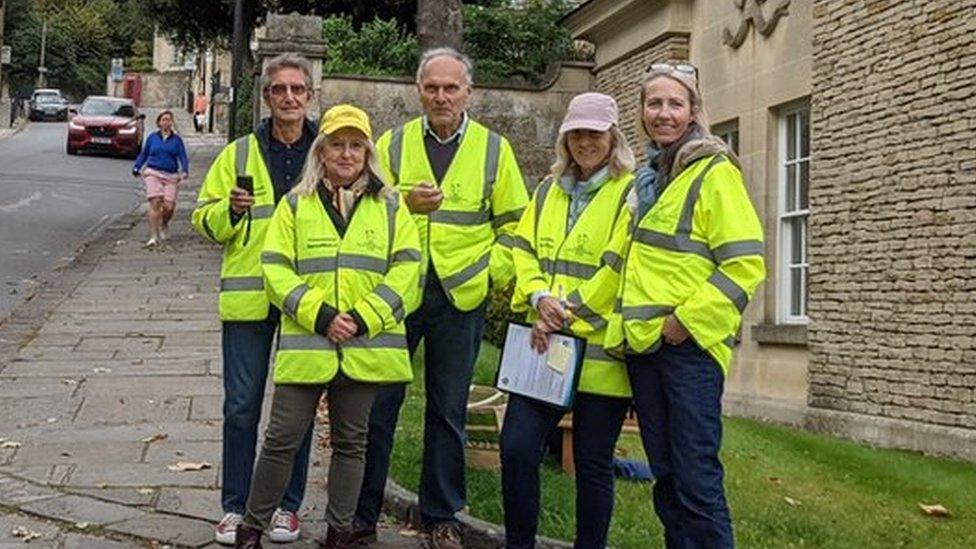
- Published14 March 2021
